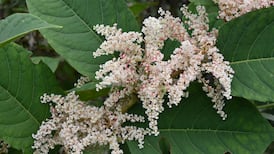This is my first year growing vegetables in our family garden and the results so far have been mixed. Most of all, I’m disappointed by my beetroot plants, which never took off even though I gave them a good sunny spot. Any tips as to how I could do better next time? Ger Murphy, Dublin
Typically raised from seed sowed in spring, this nutritious root vegetable is a staple of most kitchen gardens and allotments. Plants are fast-growing, typically taking seven to eight weeks to mature. While beetroot is usually considered an easy vegetable to grow, there are a few possible reasons why your plants haven’t flourished.
One is that you didn’t thin out the young seedlings after they emerged. The seed of beetroot is what’s known as “multigerm”, meaning that it’s actually a tight cluster of several seeds which together produce several seedlings. To grow well and provide good-sized fruit, these typically need to be thinned down to just lone seedlings spaced 7.5cm-10cm (3-4inches) apart.
Another possibility is that your seedlings didn’t receive enough water. Beetroot likes a cool, moist but free-draining soil that never totally dries out. In very dry, hot weather such as experienced regularly this summer, it can struggle to grow well.
READ MORE
These kinds of growing conditions (as well as exposure to very cold temperatures shortly after sowing) can also lead the plants to “bolt”, where instead of their roots swelling, they start to produce flowers. For this reason, it’s always a good idea to choose a bolt-resistant variety such as ‘Boltardy, ‘Pablo’ or ‘Red Ace’.
Beetroot is also more likely to bolt when grown in a soil lacking in organic matter, as the latter is much more likely to quickly become overly dry in a warm, sunny spell. For this reason, it’s a good idea to integrate some very well-rotted garden manure or home-made garden compost several months previous to sowing. Keeping young seedlings regularly well-watered is also important.
Lastly, it may be the case that the soil in your garden is low in certain key plant nutrients, which will result in stunted growth. Next year, try integrating some handfuls of a well-balanced organic pelleted fertiliser such as Topmix (fruithillfarm.com) into the soil, which will help to boost growth and produce happy, healthy plants.
















